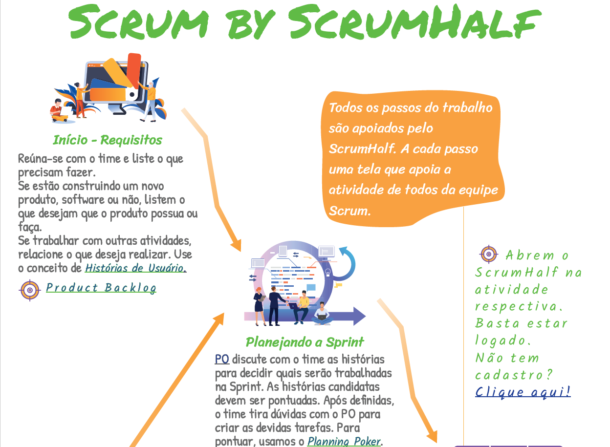 The Scrum Master takes care of Time, takes care of PO, facilitates the work of all the team Scrum for the sake of flexibility, quality and delivery of customer value. However, who cares for the Scrum Master? Does he really need a watch?
The Scrum Master takes care of Time, takes care of PO, facilitates the work of all the team Scrum for the sake of flexibility, quality and delivery of customer value. However, who cares for the Scrum Master? Does he really need a watch?
The phrase: “Who watches the watchmen?” is intersting and we can take the essential meaning to work this post today.
It´s not about watch! It´s about Trust!
Certainlly the Scrum Master doesn´t need a watchmen. After all in agile context we have decentralization of control and we star to work with autonomous teams. So, why we need a watchmen, if it´s not about watch but about trust?
The point is: the Scrum Team has someone who cares about the Scrum process, who cares about the team… so is it reasonable that the Scrum Master has someone outside the SCrum Team helping him to see the “big picture” and open his eyes and helping him?
Changing the phrase “Who watches the watchmen?” maybe we could have something like “Who supports who always supports the team?“
Who supports who always supports?
So, here I share with you a work that we are doing and it has bringing good results.
Weekly the Scrum Masters have a meeting to give each other support in their respective activities. By chance the Scrum Masters are all women. Soon our group was titled the “The Scrumetes“.
How does the Scrumetes do?
Timebox
Like any good agile process our meetings are timeboxed: weekly, same time and only 1 hour. This encourages us to prepare in advance, have a defined agenda and be efficient in the subjects we want to discuss.
Sure, as we are all women, when we get together we have 5 minutes of women conversations (makeup, movies, fashion, etc.). It’s a funny and relaxing way to open the meetings.
Planning
At the end of each meeting we confirm the scheduling of the next meeting and combine the items scheduled for discussion at the next.
Eventually, some of the agenda items may change throughout the week, if we have a very specific demand to work in, but having a plan is always important to direct and give focus to work.
Another lesson Scrum applied to our group.
Organization
We have an email group that helps us to speak to each other throughout the week, exchanging study materials that support our work, and avoid that anyone stays out of conversations. All scrumetes receive all the emails.
The email group also helps us to group our information facilitating quick access when needed.
Colaboration
Beyond email group an wiki for Scrum Mastes is also welcome. We started our this week! As this is a good practice between all company´s projects, share knowledge through the wiki, we made the same to us.
Sharing knowledge is a detached and decentralized action that adds value to the giver and to the recipient.
The Scrumetes session on wiki also will aim to organize material to enable futures Scrum Masters of the company. The information in the wiki will serve as a repository to support the Scrum Master training process.
Auto-organization
Everybody wins!
These meetings were initiated about a year ago with only 2 Scrum Masters. Earlier this year the group won another Scrumete.
Scrum Masters
The sustainable pace that we print this meeting helps us not to lose focus of the work.
It is common Scrum Master accumulate other functions and this work helps us not to lose the focus on the role of Scrum Master. It helps us to better manage our time with all responsibilities we have.
Equipe Scrum
The Scrum team, for sure. All these meetings are to improve the support we have to give to our team.
One of the items that sometimes are in our agendas is “a new retrospective technique“. Sometimes we try between us before making with our teams. It is a way to better understand the proposal and adapt according to the needs of each team and the moment we are experiencing.
The Company
We started to know the other teams member which facilitates the eventual replacement of Scrum Master, when one of them goes on vacation or gets sick.
In addition to individual work that we do with every team we also have maerial to do a larger work involving all members of the company. We can thus work more the motivations of each without losing the great context.
And you, Scrum Masters? How to coordinate your work and how to seek support for continuous improvement? This is one of the ways we do but also have others ways and you can share with us. Caould you?






